This page requires that JavaScript be enabled in your browser.
Learn how »
Iterators: The Next Iteration
Roman Maeder
Iterators are a generalization of lists that are accessed one element at a time. Iterators allow us to work with data whose length is infinite or unknown, and they avoid the explicit generation of all elements at the same time, by using incremental generators. First presented a year ago, this project has now matured, and I would like to share some of the improvements made, focusing on programming techniques for paclet design, seamless integration of iterators into the Wolfram Language and compiled iterators.
Thanks for your feedback.
1311 videos match your search.
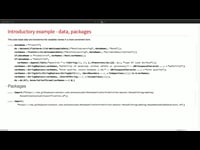 |
Anton Antonov |
 |
Oleg Marichev, Dan McDonald |
 |
Jose Martin-Garcia Wolfram Language 14 introduces new functionality to compute everything about solar eclipses, like the total eclipse of April 8, 2024. The updated function SolarEclipse can compute lots of things about more than 72 thousand solar eclipses in 30 thousand years, with high precision. This talk demonstrates these new capabilities of the Wolfram Language Astro functionality, with multiple visualization examples to help with understanding the time evolution and geometry of any type of ... |
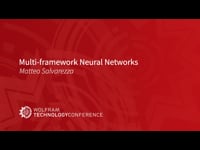 |
Matteo Salvarezza In this talk I will present NetExternalObject, a new symbol in Wolfram Language 13.2. It exposes new functionality to interface with external deep learning frameworks and run neural networks in their ... |
 |
Anton Antonov This presentation discusses designing a conversational agent for data acquisition workflows, an extension of the work on multilanguage data wrangling conversational agents from WTC-2020, including the various facets and subparts. |
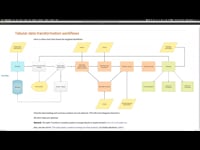 |
Anton Antonov In this talk, Anton Antonov shows and compares data-wrangling examples in different programming languages using different packages, relying heavily on external evaluators and voice-recognition features considered experimental at the time ... |
 |
Biena Mathew |
 |
Jofre Espigule-Pons This talk will introduce the transformer machine learning model, which revolutionized the field of natural language processing. Then I will present M2M -100, the first multilingual machine translation (MMT) ... |
 |
Brett Champion |
 |
Tom Sherlock Wolfram Language can automate many aspects of astronomical observations, including the tedious process of capturing an image sequence through four color filters and calibration frames. All the alignment, stacking and ... |
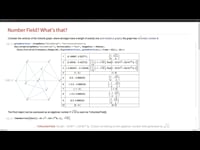 |
Ed Pegg |
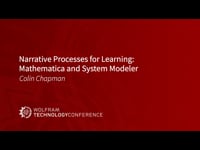 |
Colin Chapman The Victorian Curriculum and Assessment Authority Systems Engineering Study teaches students to design, produce, operate, evaluate, and improve integrated systems while considering systems' interactions with people, society, and ecosystems. It ... |
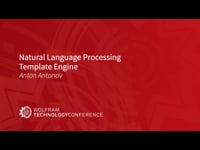 |
Anton Antonov In this presentation, we discuss the completion of computational templates with parameters that are extracted from text specifications using a question answering system. We outline the general method and demonstrate ... |
 |
James Sturnfield This presentation illustrates the calculation of natural solutions for problems containing delay differential equations (DDE) with a single time delay for both linear and nonlinear equations, with and without starting ... |
 |
Gunnar Prieß |
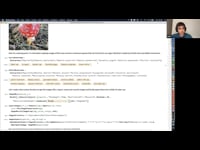 |
Jofre Espigule-Pons Current smartphones are powerful enough to run neural networks locally without a cloud server connection. Deploying and running a custom neural network on your phone depends on your phone's operating ... |
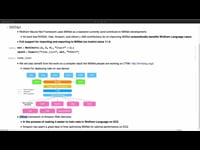 |
Sebastian Bodenstein |
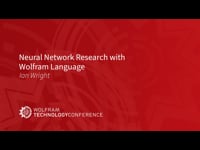 |
Ian Wright Wolfram Language provides an advanced framework for rapidly prototyping neural network applications and exploring research ideas. In this talk, I demonstrate the language features that helped me develop a novel ... |
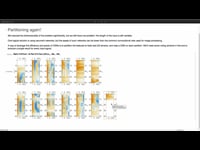 |
Carlo Giacometti |
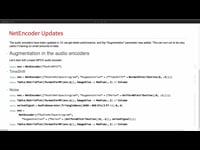 |
Carlo Giacometti |